Wisconsin Farm Bureau Submits Testimony Supporting Wolf Hunting Season
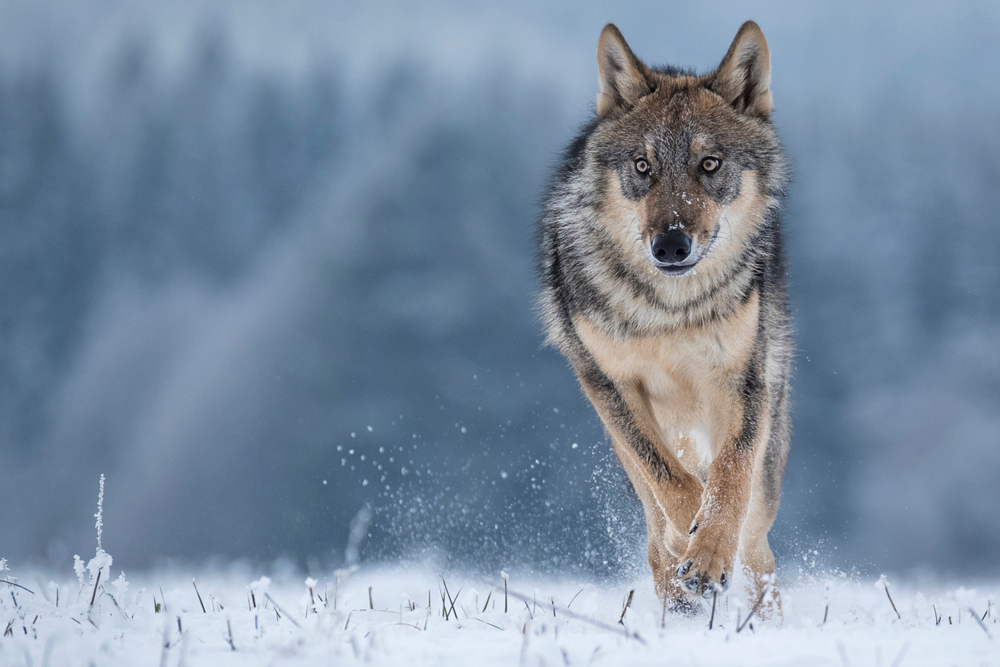
On Wednesday, January 13, Wisconsin Farm Bureau submitted testimony in support of a state wolf hunting season during a joint Wisconsin Senate and Assembly Sporting Heritage Committee hearing.
“The wolf population recovering is a success story and now we must look at ways to manage the population at a healthy level,” said WFBF President Kevin Krentz. “Wisconsin farmers want to live in harmony with wolves and other wildlife but need a means to protect their families reduce conflict with livestock.”
A full copy of the testimony submitted by WFBF can be read here.
In addition to the organization’s testimony, Farm Bureau member Ashleigh Calaway also submitted written testimony.
“Like so many other farmers, I have experienced wolf kills on our family farm,” said Calaway. “I had heard about wolf attacks in the Northwoods of Wisconsin but never dreamed it would happen to us in central Wisconsin. Please work together and push for a wolf hunt now to help Wisconsin farmers sleep a little easier at night.”
WFBF will continue to engage in discussions surrounding the implementation of a state wolf hunting season.
Wisconsin Cheese Launches Personalized Heart Shaped Boxes of Cheese
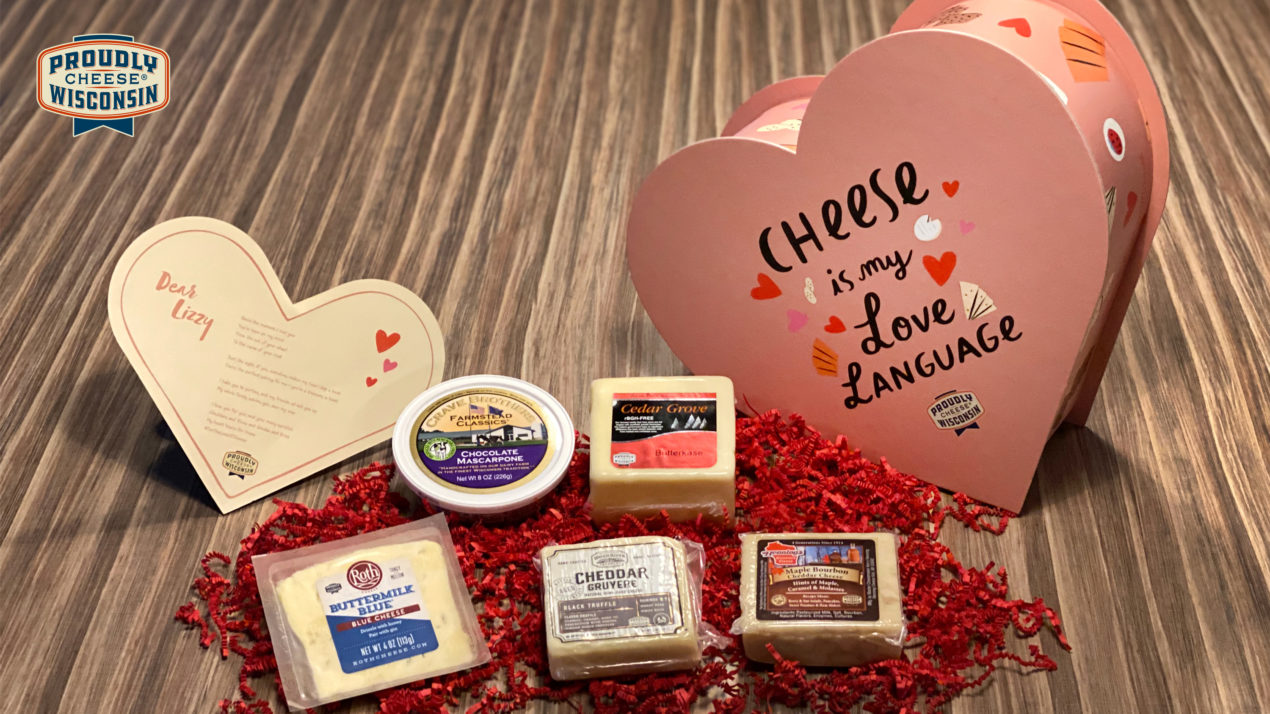
Wisconsin Cheese officially declares cheese as the universal love language of 2021. With a stinky 2020 that had us feeling bleu, there’s no cheddar way to celebrate a gouda Valentine’s Day than by sending a complimentary heart-shaped box of delicious Wisconsin Cheese! Beginning today, through January 31st, you can nominate and surprise a cheese obsessed friend, sibling, significant other, coworker – you name it, to receive one of 500 limited edition gift boxes from Wisconsin, The State of Cheese®, just in time for Valentine’s Day. Full nomination rules and details are available at WisconsinCheese.com/ForTheLoveOfCheese.
Each limited-edition box features a selection of five specialty Wisconsin cheeses, crafted by multi-generation cheesemakers including Master Cheesemakers, and sponsored by the experts at Dairy Farmers of Wisconsin. To personalize the gift, nominators can add the lucky recipient’s name to a cheesy greeting – with a friendly light-hearted option for colleagues and neighbors, a sweet note for friends and family or a sexy fromage-filled poem for the most daring and romantic cheese lovers. In addition, the boxes’ cover art is designed by nationally recognized illustrator, Libby VanderPloeg, making it a keepsake.
“It’s the season of love, and this year we’re thinking beyond traditional symbols of romance for a more inclusive holiday that everyone can enjoy. From now until Valentine’s Day, we’re taking the pressure for receiving a rose off the table and celebrating our love for all things cheese,” says Suzanne Fanning, Chief Marketing Officer for Wisconsin Cheese and Senior Vice President for Dairy Farmers of Wisconsin. “In Wisconsin, cheese is our love language, and we know many of our fans across the country feel the same way, so this is a “grate” way to celebrate with cheese lovers nationwide.”
From the dedication of the cheesemakers to the innovation and mastery behind their products, loving cheese takes on a new meaning in Wisconsin. Cheese makes the world a better, happier place and gifting it is the greatest way to show somebody how much you care. Is your child’s nanny obsessed with making cheese boards in their free time? Say thank you by nominating them to receive the gift that steps up any homemade spread. Is the match that you’ve been on three Zoom dates with originally from Wisconsin? Unlock the key to this Midwesterner’s heart by treating them to a taste of home!
Wisconsin specialty cheeses featured in the heart-shaped gift box include:
· Crave Brothers Chocolate Mascarpone – Sweet cream kissed with chocolate, this velvety ambrosia adds a touch of luxury to desserts and can be enjoyed as a dip for fresh strawberries as your meal’s pièce de résistance.
· Cedar Grove Butterkäse – Short for “buttery cheese” because of its soft and silky, buttery texture, this decadently creamy cheese will make anyone who tastes it instantly swoon.
· Wood River Creamery Black Truffle Cheddar Gruyere – The aromatic truffle married to this aged cheddar and gruyere blend creates a complex and sophisticated flavor that your date will surely want to linger over.
· Roth Buttermilk Blue – Stop the world and melt your loved one’s heart with this award-winning luscious and creamy blue cheese. Simply drizzle with honey to soften any mood.
· Henning’s Maple Bourbon Cheddar – Perfect for anyone with sophisticated taste, this full-bodied white cheddar charms with mouthwatering hints of maple, caramel and molasses, and surprises as a delightful pair with chocolate truffles.
They say money can’t buy love, and it definitely can’t buy these custom heart shaped cheese boxes (valued at over $100). Happy nominating #ForTheLoveOfCheese! Find cheese gifts, pairing guides, Valentine’s Day recipes – including Chocolate-Raspberry Mascarpone Fondue, Mini Chocolate Covered Strawberry Cheesecakes and more on WisconsinCheese.com.
UW–Madison dairy science virtual preview day scheduled for Jan. 20
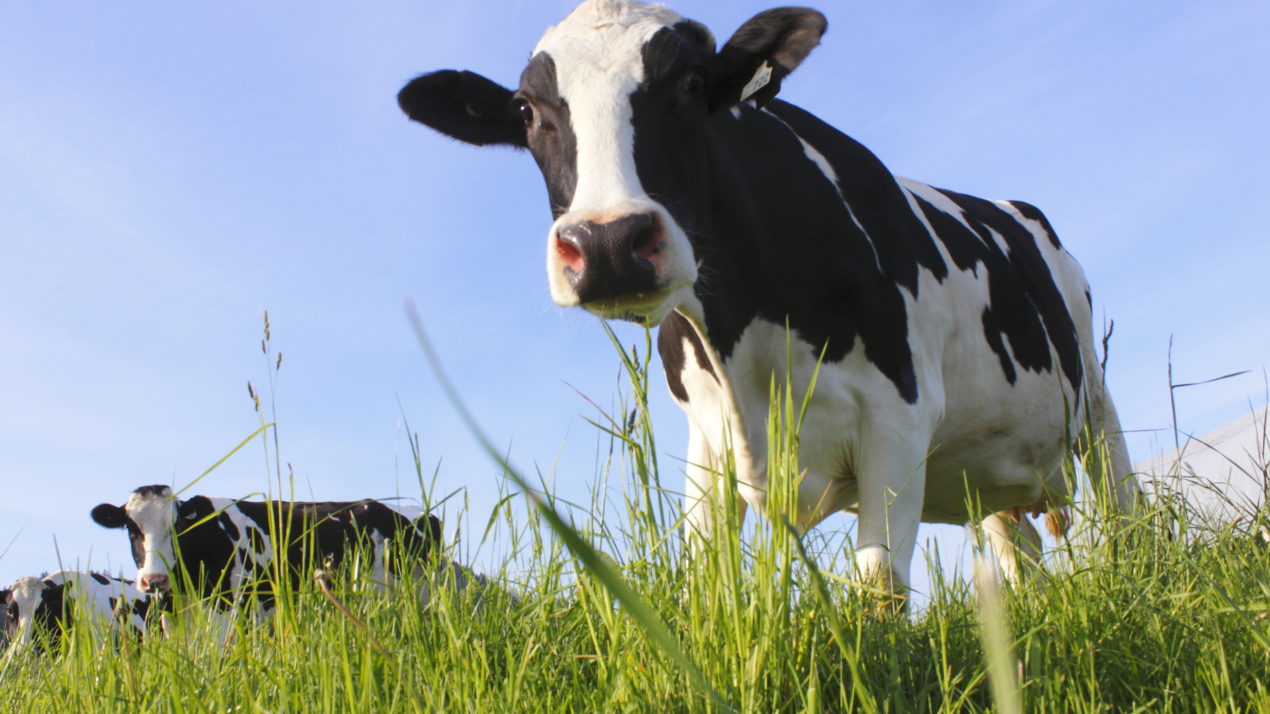
The University of Wisconsin–Madison’s Department of Animal and Dairy Sciences invites prospective students that are interested in majoring in dairy science to attend a live preview day event on Wednesday, Jan. 20, 7:00 p.m. to 8:30 p.m. CST, to explore what the program has to offer.
Hosted as a Zoom meeting, admitted and prospective students and their families can gain a firsthand look at one of the world’s leading dairy science programs. Attendees will learn about the curriculum, scholarships and financial aid availability, career options, and extracurricular opportunities that make-up the “Badger experience” for dairy students. Current students and alumni will be also on hand to answer questions and to talk about their involvement in campus activities.
UW–Madison’s undergraduate dairy science program is an integrated biology major that emphasizes a combination of cutting-edge, science-based knowledge and hands-on experience. Award-winning research and extension faculty teach more than 20 undergraduate courses covering nutrition, reproduction, mammary physiology, genetics, and other aspects of dairy management. Dairy science majors benefit from an 8:1 student-to-faculty ratio that translates into smaller classes where students can receive individual attention from instructors, accommodation of different learning styles, and much more.
“The best way for you to get to learn about our program and student experience is through a campus visit, but we know that COVID-19 prevents that from happening this year,” says Kent Weigel, professor and chair of the Animal and Dairy Sciences department. “Students that visit are often amazed by the small-school feel of our ag campus and the extra benefits they get studying at a Big Ten university. That, and our proximity to the heart of the dairy industry, is what makes UW-Madison such a special place for our students to attend college.”
For UW-Madison admission eligibility, it is recommended that seniors rank in the top 25 percent of their high school class. Transfer students must have completed at least 24 semester hours of college–level work. Most transfer students have a GPA of at least a 3.0 on a 4.0 scale.
To attend the department’s Dairy Science Preview Day, please register at https://apps.admissions.wisc.edu/visitbucky/event_view.php?eid=13097.
For more information, contact Ted Halbach at 608-219-5289 or [email protected]
Krentz Elected to American Farm Bureau Board

Kevin Krentz was elected to serve a one-year term on American Farm Bureau’s Board of Directors. Krentz was elected president of the Wisconsin Farm Bureau Federation and Rural Mutual Insurance Company last month. Krentz is a dairy farmer from Berlin in Waushara County.
Krentz was first elected to the WFBF Board of Directors in 2012 to represent District 5, which includes: Adams, Fond du Lac, Green Lake, Juneau, Marquette, Waushara and Winnebago counties.
Krentz started his farming career in 1994 when he purchased his father’s 60 cows. He grew the farm to 600 cows and 1,300 acres of crops. Kevin and his wife, Holly, have a daughter and three sons.
Brossard Elected Vice-Chair of AFBF Committee
Andrea Brossard was elected vice-chair of American Farm Bureau’s Promotion and Education Committee. Last week, Brossard was re-appointed by AFBF to its Promotion and Education Committee for a two-year term.
Brossard is a third-generation dairy farmer at Brossard Dairy Farm, LLC, her family’s farm, in Beaver Dam. She also serves on the Dodge County Farm Bureau board of directors and is a graduate of the Wisconsin Farm Bureau Leadership Institute. Brossard is also a graduate of the AFBF Women’s Communications Bootcamp.
YFA Members Shine in National Light
Julie Sweney of Dodge County made it to the Sweet-16 Round of American Farm Bureau’s Young Farmers and Ranchers Discussion Meet.
The Discussion Meet contest is a panel discussion in which Farm Bureau members between the ages of 18 and 35 are judged on their ability to express their ideas and opinions and reach a solution on current issues affecting agriculture. The competition was held virtually this year.
Sweney grew up on her family’s dairy farm in Dodge County. She is a 2011 graduate of the WFBF Leadership Institute and serves on the Dodge County Farm Bureau board of directors as membership chair. She is the director of marketing and communications at FarmFirst Dairy Cooperative, serving dairy farmers throughout the Midwest.
Natasha Paris represented Wisconsin in the national Excellence in Agriculture Award where she made the Top Ten.
The Excellence in Agriculture Award is presented to a Farm Bureau member between the ages of 18 and 35 who is actively engaged in agriculture but derives the majority of his or her income from an off-farm agricultural career.
Paris is an agri-science teacher and FFA advisor at Ripon High School. She and her husband, Jordan, own ParKelm Farm, a pasture-based livestock operation. Paris has been a Farm Bureau member since 2015 and serves as the YFA chair and vice president of Green Lake County Farm Bureau.
Wisconsin Ag Innovation Contestant Named Finalist
Arbré Technologies Inc. led by WFBF member Matthieu Vollmer was selected as one of the four finalists in the 2021 AFBF Ag Innovation Challenge.
Other finalists included, Washington-based Harvust, Puerto Rico’s Agro Empresas Black Belt and TerraClear Inc. of Idaho.
The winner of this year’s Ag Innovation Challenges was Walla Walla, Washington-based Harvust. This software platform helps farmers successfully hire, train and communicate with employees. As the winner, the company received a total of $50,000 in prize money to help grow the business.
The final four teams were selected on Friday, Jan. 8, from 10 semi-finalist business owners who presented to a panel of six industry judges. Each of the 10 finalists was awarded $7,500 and the final four teams were awarded a total of $15,000 each.
CWD Detected In Shawano County
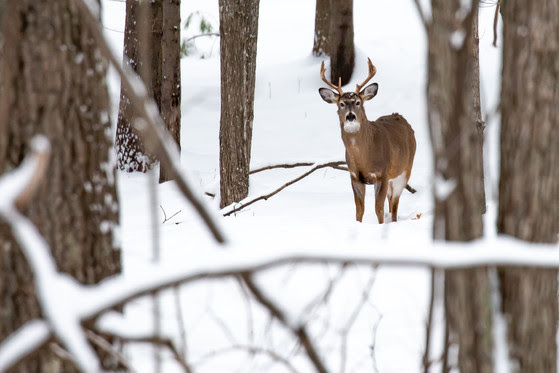
The Wisconsin Department of Natural Resources (DNR) confirms a wild deer tested positive for chronic wasting disease (CWD) in the Town of Germania in southwestern Shawano County, within 10 miles of Waupaca County. As required by state law, the DNR will renew the baiting and feeding bans in Shawano and Waupaca counties.
The CWD-positive deer was an adult doe harvested during the 2020 gun deer season and was tested as part of the department’s disease surveillance efforts. This is the first wild deer detection in Shawano County.
State law requires that the DNR enact a ban on the baiting and feeding of deer in counties or portions of counties within a 10-mile radius of a wild or farm-raised deer that tests positive for CWD. Baiting and feeding were already banned in Shawano County due to a prior CWD positive detection in a farm-raised facility in 2017.
The DNR will continue surveillance near the CWD positive detection location. Collecting CWD samples is essential for assessing where and to what extent CWD occurs in deer across the state.
As ever, successful CWD management depends in part on citizen involvement in the decision-making process through local County Deer Advisory Councils (CDAC).
The upcoming Shawano County CDAC meeting to discuss deer population objectives will be extended to include the new CWD information. The meeting will be held virtually via Zoom on Jan. 19 at 7 p.m., with the CWD portion of the agenda beginning at approximately 7:45 p.m. The public is invited to attend. Additional details regarding the Shawno County CDAC is available here. (Select Shawano from the drop-down menu.) Preregistration is not required.
CWD is a fatal, infectious nervous system disease of deer, moose, elk and reindeer/caribou. It belongs to the family of diseases known as transmissible spongiform encephalopathies (TSEs) or prion diseases. CWD occurs only in members of the cervid or deer family – both wild and captive. The Wisconsin DNR began monitoring the state’s wild white-tailed deer population for CWD in 1999. The first positives were found in 2002.
More information regarding baiting and feeding regulations and CWD in Wisconsin is available here. Information on how to have deer tested during the 2020-21 hunting seasons is available here.
Wisconsin Leopold Conservation Award Seeks Nominees
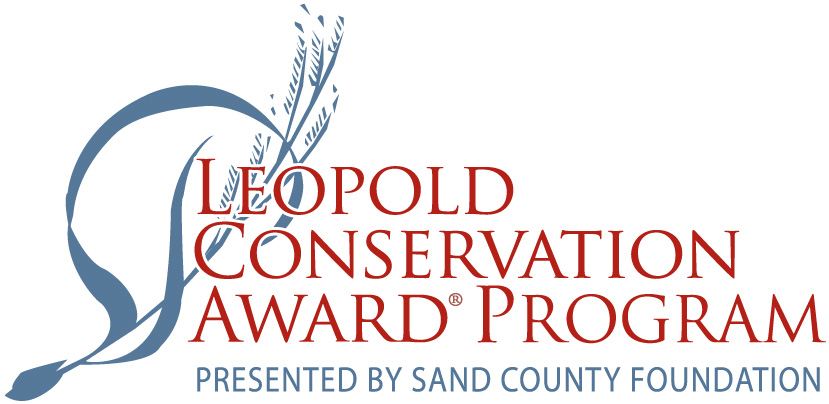
Know a Wisconsin farmer or forester who goes above and beyond in the care and management of natural resources? Nominate them for the 2021 Wisconsin Leopold Conservation Award®.
Sand County Foundation presents the Leopold Conservation Award to private landowners in 20 states for extraordinary achievement in voluntary conservation. In Wisconsin the $10,000 award is presented annually with Wisconsin Farm Bureau Federation, Dairy Farmers of Wisconsin, and Wisconsin Land and Water Conservation Association.
Given in honor of renowned conservationist Aldo Leopold, the award recognizes landowners who inspire others with their dedication to land, water and wildlife habitat management on private, working land. In his influential 1949 book, “A Sand County Almanac,” Leopold called for an ethical relationship between people and the land they own and manage.
Nominations may be submitted on behalf of a landowner, or landowners may nominate themselves. The application can be found at www.sandcountyfoundation.org/ApplyLCA.
The application deadline date is August 5, 2021. Applications can be emailed to [email protected]. If mailed, applications must be postmarked by August 5, and mailed to:
Leopold Conservation Award
c/o Sand County Foundation
131 W. Wilson Street, Suite 610
Madison, WI 53703
Applications are reviewed by an independent panel of agricultural and conservation leaders.
“A commitment to conservation is truly worth recognizing and celebrating,” said Kevin Krentz, Wisconsin Farm Bureau President. “I encourage farmers to apply or nominate someone who deserves this special recognition for their continued conservation efforts.”
“Dairy farmers have a long history of nurturing and protecting the natural resources within their care. The Dairy Farmers of Wisconsin and the dairy farm families we represent are proud to again sponsor the Leopold Conservation Award,” said Patrick Geoghegan, Dairy Farmers of Wisconsin Executive Vice President, Industry Relations.
“As a national sponsor for Sand County Foundation’s Leopold Conservation Award, American Farmland Trust celebrates the hard work and dedication of farmers, ranchers and forestland owners,” said John Piotti, AFT President and CEO. “At AFT we believe that conservation in agriculture requires a focus on the land, the practices and the people and this award recognizes the integral role of all three.”
“Recipients of this award are real life examples of conservation-minded agriculture,” said Kevin McAleese, Sand County Foundation President and Chief Executive Officer. “These hard-working families are essential to our environment, food system and rural economy.”
The Leopold Conservation Award Program in Wisconsin is made possible thanks to the generous support of American Farmland Trust, Dairy Farmers of Wisconsin, Wisconsin Farm Bureau Federation, Sand County Foundation, Compeer Financial, Culver’s, McDonald’s, USDA Natural Resources Conservation Service, We Energies Foundation, Wisconsin Corn Growers Association, Wisconsin Corn Promotion Board, Wisconsin Land and Water Conservation Association, and Wisconsin Potato and Vegetable Growers Association.
The Leopold Conservation Award will be presented at the Wisconsin Farm Bureau Federation’s Annual Meeting in December.
The first Wisconsin Leopold Conservation Award recipient was selected in 2006. John and Melissa Eron of Stevens Point received the award in 2020.
Discover Enriching Keynote Presentations at CheeseExpo Global Online

Keynote presentations at CheeseExpo Global Online April 6-8, 2021 will showcase dairy industry CEOs and top marketing experts, offering attendees an in-depth look at timely industry opportunities, challenges and consumer trends.
Register before February 1 and receive a $100 discount to access these unique educational opportunities at CheeseExpo Global Online.
“Each day at CheeseExpo Global Online begins with an enriching keynote address,” said John Umhoefer, Executive Director of the Wisconsin Cheese Makers Association (WCMA). “Attendees will gain crucial insights, hearing directly from industry leaders, learning the latest consumer and market channel data, and enjoying the WCMA Industry Recognition Awards.”
CheeseExpo Global Online follows the daily keynote with informative seminars, Ideas Showcase talks, exhibits and “spotlight” closing events each day.
Keynote presentations will kick off each day’s official programming from noon to 12:55 p.m. (CDT), including:
April 6: The RELCO® Opening Keynote: Cheese Industry CEOs Look to the Future
This online panel will feature David Ahlem, CEO and President of Hilmar Cheese Company; Emile Cordeau, CEO of Agropur and Carl Colizza, President and CEO of Saputo Dairy USA. These leading cheese producers in the U.S. and globally will reflect on 2020, but focus on learnings and strengths that will guide dairy into the future after the largest global disruption in generations. Phil Plourd, President of Blimling and Associates, will moderate and guide this discussion, hosted by RELCO®, a Koch Separation Solutions Company.
April 7: The DSM Food Specialties USA Keynote Event: WCMA Recognition Awards
A host of industry leaders earned our thanks and recognition in 2020 and 2021, and we’ll highlight our Cheese Industry Champions, Distinguished Service Award winners, Vanguard Award cheesemakers and Babcock Award educators. Join the ceremony and applaud these greats as they acknowledge their awards in video presentations. Hosted by DSM Food Specialties USA.
April 8: The Amcor Flexibles North America Keynote Address: Moving On – Trends that will Change the Way You Do Dairy
An energetic keynote address from Paul Ziemnisky, Executive Vice President of Global Innovation Partnerships with Dairy Management Inc. and Laurie Demerrit, CEO of The Hartman Group, will explore the consumer and sales channel environment in a marketplace emerging from COVID-19. Data can provide a look back at the shock and disruptions of 2020, but most importantly, research and information offer look forward. Our keynoters will address topics including:
- ● How have consumers acted and reacted in the last 12 months?
- ● Which of those tendencies and trends will carry into the future – how will they transform the future for dairy?
- ● What new business models and actions are emerging in the restaurant trade and grocery trade that may reflect the impact from 2020, and change how and where consumers enjoy cheese and dairy products?
- ● What consumer trends and new behaviors are emerging in in-home dining, in snacking?
- ● How has major growth in e-commerce impacted dairy and where is that trend headed?
- ● What dairy products, new cheese products, might fit with changes in the future?
Amcor Flexibles North America hosts this final keynote event of CheeseExpo Global Online. Visit CheeseExpoGO.org by February 1 to receive a $100 discount at CheeseExpo Global Online.
Final Crop Report Says 517 Million Corn Bushels in 2020
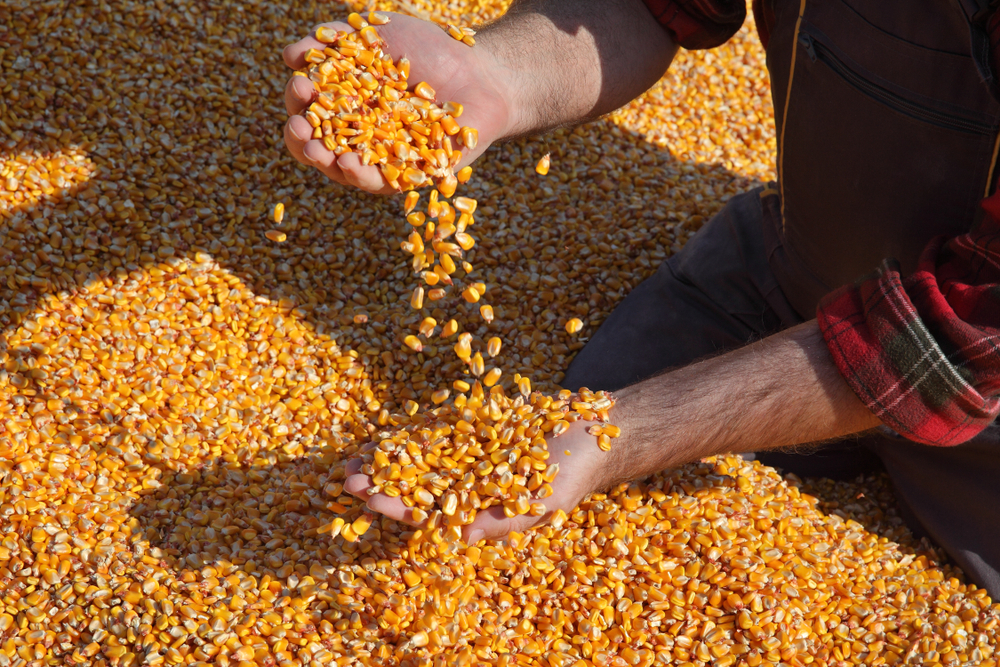
Corn for grain production in Wisconsin during 2020 is estimated at 517 million bushels, according to the USDA, National Agricultural Statistics Service Crop Production 2020 Summary report. This estimate is down 3% from the November 1 forecast but up 17% from 2019. Wisconsin’s corn for grain yield is estimated at 174 bushels per acre, 10 bushels below the November 1 forecast. Area harvested for grain is estimated at 2.97 million acres, up 70,000 acres from the November 1 forecast and 300,000 acres above 2019. Corn planted for all purposes in 2020 is estimated at 4.00 million acres, the same as the November 1 estimate and up 5% from 2019.
Corn for silage production is estimated at 20.4 million tons, up 12% from 2019. The silage yield estimate of 21.0 tons per acre is 3.5 tons higher than 2019. Producers harvested 970,000 acres of corn for silage, a decrease of 70,000 acres from 2019.
Soybean production is estimated at 100 million bushels in 2020, down 4.47 million bushels from the November 1 forecast but 26% above 2019. Wisconsin soybean growers averaged 51.0 bushels per acre in 2020, down 2.0 bushels from the November 1 forecast but 4.0 bushels above the 2019 yield. The harvested acreage of 1.97 million is down 10,000 acres from November 1 but up 280,000 acres from 2019. Soybean planted acreage, at 2.00 million acres, is up 14% from 2019.
All dry hay production for the state is estimated at 3.48 million tons, up 25% from 2.78 million tons in 2019. Producers averaged 2.54 tons per acre, up from 2.14 tons per acre in 2019. All hay harvested acres are estimated at 1.37 million acres, up 70,000 acres from 2019.
Alfalfa and alfalfa mixtures for dry hay production is estimated at 2.69 million tons, up 27% from 2.11 million tons in 2019. Producers averaged 3.20 tons per acre, up from 2.40 tons per acre in 2019. Harvested acres, at 840,000, were down 40,000 acres from 2019. Wisconsin producers seeded 400,000 acres of new seedings of alfalfa and alfalfa mixtures in 2020, down 80,000 acres from the previous year.
Other dry hay production is estimated at 795,000 tons, 18% above 2019. Producers averaged 1.50 tons per acre, down from 1.60 tons per acre in 2019. Harvested acres of other hay, at 530,000, were up 110,000 acres from the previous year.
Potato production for 2020 is estimated at 27.8 million cwt, down 3% from 2019. Yield is estimated at 400 cwt per acre, down 10 cwt per acre from last year. Planted and harvested acres are estimated at 70,000 acres and 69,500 acres, respectively.
Snowmobilers: Think Smart Before You Start
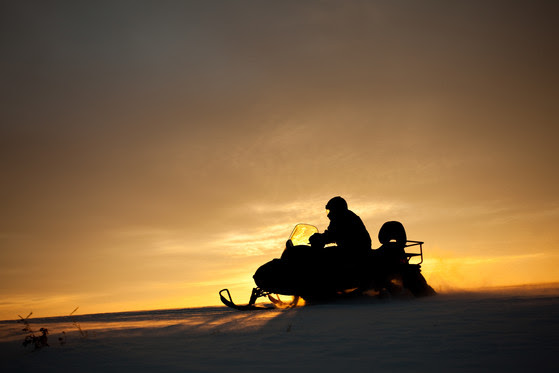
With winter officially in full swing in Wisconsin, the Wisconsin Department of Natural Resources (DNR) reminds snowmobilers that safety is key for the best ride.
Snowmobiling got off to a deadly start last year. There were 19 snowmobile fatalities between January and March 2020, three of those involving someone under the age of 18.
“Most snowmobile crashes are preventable. Alcohol, excess speed, driver inexperience and operator error are the leading causes of snowmobile fatalities,” said DNR Conservation Warden Lt. Martin Stone. “Safety is an important part of the ride. Make sure to brush up on safety rules and regulations before you head out this winter.”
There is no such thing as 100% safe ice. Snowmobilers cannot judge ice’s strength by factors like appearance, age, thickness or temperature, especially when the ice is snow-covered. Before heading out, snowmobilers are encouraged to contact local fishing clubs, snowmobile clubs or outfitters to inquire about ice conditions, as the DNR does not monitor these conditions.
Any person who is at least 12 years old and born on or after Jan. 1, 1985 is required to have a valid Snowmobile Safety Certificate to operate a snowmobile in most areas. Operators must carry the certificate while riding and display it to a law enforcement officer when requested. More snowmobile regulations are available here.
Think smart before you start this season by following these tips:
ON THE TRAILS
- Don’t drink and ride.
- Stay on marked trails and routes.
- Always stay to the right side of the trail, especially in corners. The trails are public; never ride like there is no one else coming.
- Always come to a complete stop at all stop signs and road crossings and yield to motor vehicle traffic. When stopped, look both ways and cross only when it’s safe.
- Always wear your helmet and safety gear.
- Use extra caution at night. When traveling at night, operate at reasonable speeds as to not overdrive what headlights can illuminate, such as trail markers or hazards. Remember that there is a 55 mph speed limit at night.
- Travel with a friend, carry a cell phone and let people know where you are going and when you’ll return home.
- Dress appropriately and carry a first-aid kit and navigation tools.
- Take a snowmobile safety course. Visit the DNR Safety Education webpage for details and to locate a class or take an online course.
ICE SAFETY
The DNR does not monitor local ice conditions or the thickness of the ice. Local bait shops, fishing clubs and resorts serve winter anglers every day and often have the most up-to-date information about ice thickness on local lakes and rivers, as well as areas that are especially dangerous.
- Remember that ice is never completely safe under any conditions.
- Contact local sports shops to ask about ice conditions locally.
- Wear proper clothing and equipment, including a life jacket or a float coat to help stay afloat and slow body heat loss.
- Do not travel in unfamiliar areas.
- Slow down when traveling at night.
- Know if the lake has inlets, outlets or narrows with currents that can thin the ice.
- Watch out for pressure ridges or ice heaves. These can be dangerous due to thin ice and open water.
Additional information on snowmobile safety classes, regulations, safety tips and snowmobile registration is available here.
Gov. Tony Evers shares rural priorities for the biennial budget including broadband and meat processing


